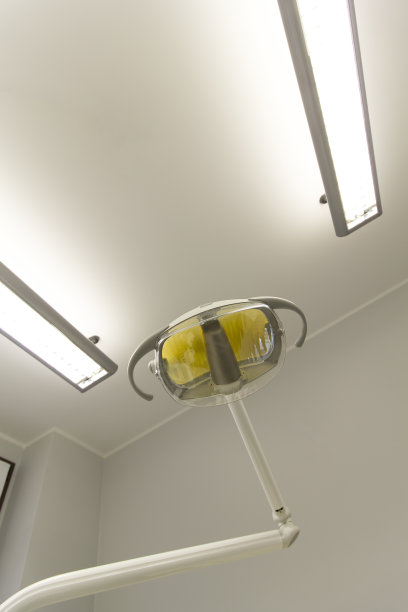Understanding Periodontal Disease Its Causes Effects and Effective Treatment Strategies for Better Oral Health
Summary: Periodontal disease is a prevalent dental issue that primarily affects the gums and supporting structures of the teeth. This article delves into its causes, including poor oral hygiene and genetic factors, and explores its effects on overall health, such as tooth loss and increased risk of systemic diseases. Additionally, we discuss effective treatment strategies, including preventive measures and advanced clinical therapies, to enhance oral health. By understanding periodontal disease, individuals can take proactive steps towards maintaining a healthier smile and overall wellbeing.
1. Understanding the Causes of Periodontal Disease

Periodontal disease starts with the accumulation of plaque, a sticky film of bacteria that forms on teeth. When not removed by regular brushing and flossing, plaque hardens into tartar, leading to gum inflammation, known as gingivitis. If left untreated, this can progress to more severe periodontal disease.
Another significant cause of periodontal disease is genetic predisposition. Studies reveal that individuals with a family history of gum disease may have a higher likelihood of developing the condition, regardless of their oral hygiene practices. Understanding this genetic factor is crucial for early intervention and proactive care.
Additionally, lifestyle choices such as smoking, poor nutrition, and stress can exacerbate the risk of periodontal disease. Smoking reduces blood flow to the gums, impairing healing, while a diet lacking in essential nutrients can compromise the immune systems ability to fight off infections. Recognizing these contributing factors can lead to better management and preventive strategies.
2. Effects of Periodontal Disease on Oral Health
One of the most visible effects of periodontal disease is the inflammation and bleeding of the gums. This not only causes discomfort but can also lead to chronic bad breath, impacting social interactions and self-esteem. The initial stages may be barely noticeable, but continuous neglect can result in significant oral health deterioration.
In more advanced stages, periodontal disease can result in the loss of tooth attachment and, ultimately, tooth loss. The loss of teeth can drastically affect an individuals ability to eat and speak, thereby impacting quality of life. Furthermore, it can create a cycle where the individual avoids certain foods, leading to nutritional deficiencies.
Recent research also suggests a connection between periodontal disease and systemic health issues, such as heart disease and diabetes. The inflammation caused by gum disease may lead to systemic inflammation, increasing the risk of more severe health problems. Understanding these implications highlights the importance of maintaining good oral hygiene and seeking early treatment.
3. Effective Treatment Strategies for Periodontal Disease
Prevention is the first line of defense against periodontal disease. Regular dental check-ups and professional cleanings are vital for removing plaque and tartar, as well as for early detection of gum disease. Patients should also be educated on effective brushing and flossing techniques to maintain optimal oral hygiene at home.
For those diagnosed with periodontal disease, non-surgical treatments such as scaling and root planing are commonly recommended. This deep cleaning procedure removes plaque and tartar from below the gum line, promoting gum healing and reattachment to the teeth. Coupled with improved oral hygiene practices, these treatments can yield significant improvements in gum health.
In more severe cases, surgical interventions may be necessary. Procedures such as flap surgery or bone grafting can help restore the health of the gums and supporting structures of the teeth. In addition, newer regenerative techniques, including guided tissue regeneration, show promise for rebuilding the gum tissues lost to periodontal disease.
4. Integrating Lifestyle Changes for Better Oral Health
Adopting a holistic approach to oral health includes making lifestyle changes that promote better periodontal health. Quitting smoking is one of the most impactful decisions individuals can make, as it significantly reduces the risk of gum disease and enhances healing.
A balanced diet rich in vitamins and minerals is crucial for maintaining healthy gums. Foods high in vitamin C, for example, can improve gum health and support the immune system. Staying hydrated also plays a crucial role in maintaining oral health by helping to wash away food particles and bacteria.
Moreover, managing stress through various techniques such as exercise, meditation, or hobbies can contribute to overall wellness and reduce the risk of periodontal disease. By integrating these lifestyle changes with professional dental care, individuals can take significant steps towards improved oral health and disease prevention.
Summary:
In conclusion, understanding periodontal disease, its causes, effects, and treatment strategies is essential for maintaining oral health. Being aware of the risk factors and the importance of oral hygiene can empower individuals to take charge of their dental wellbeing. Early detection and lifestyle adjustments play crucial roles in preventing and managing this common condition.
This article is compiled by Vickong Dental and the content is for reference only



